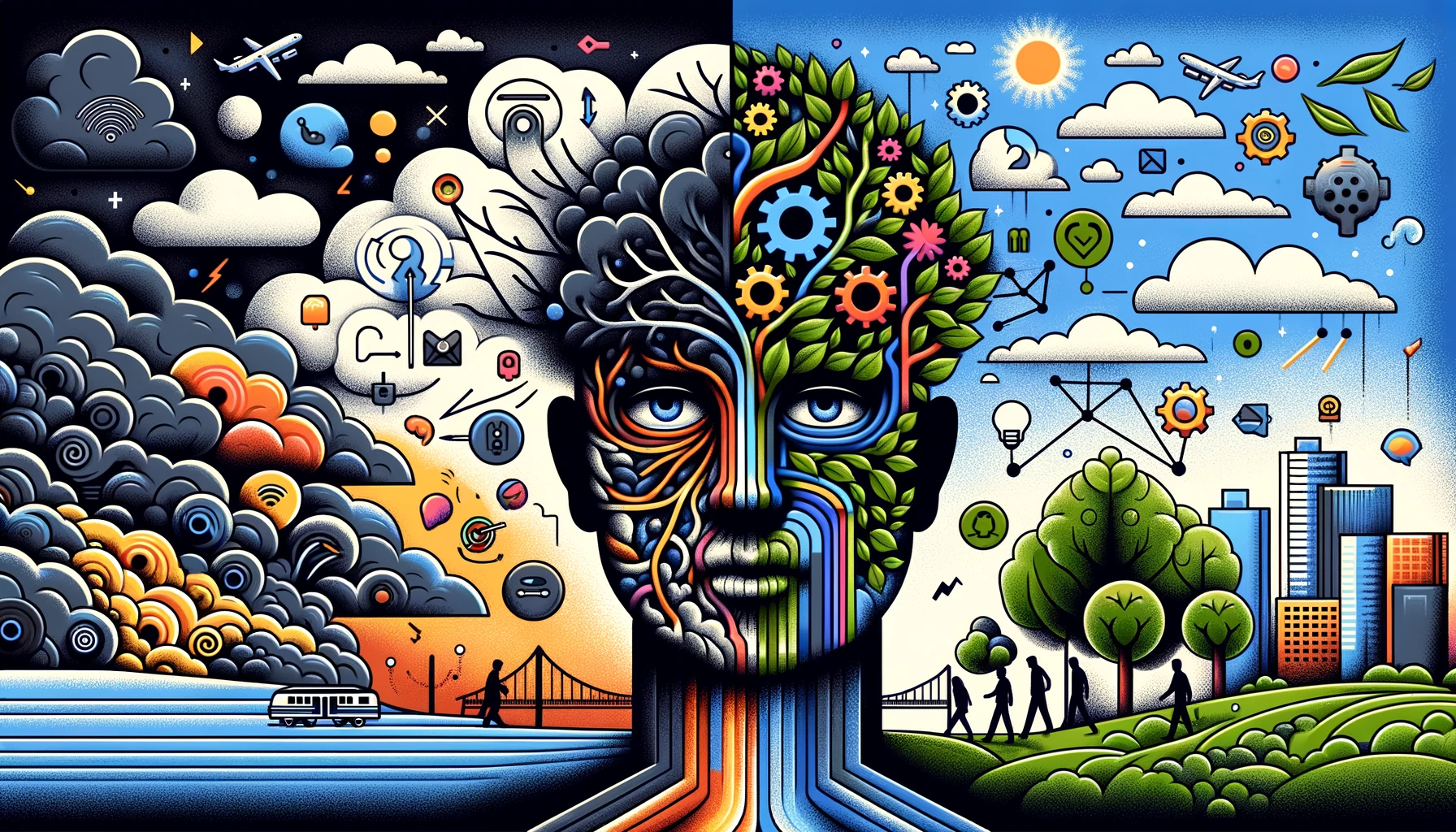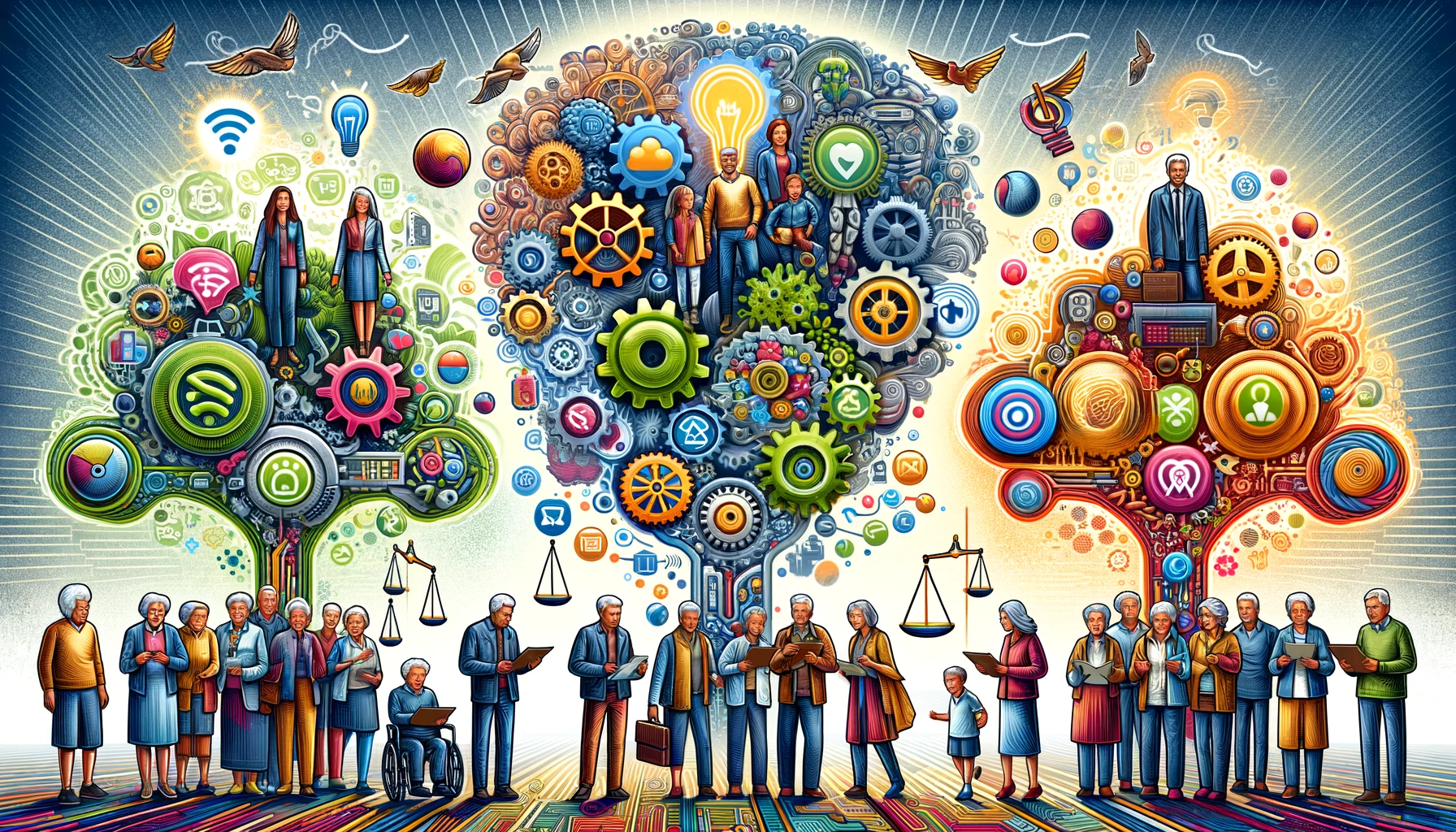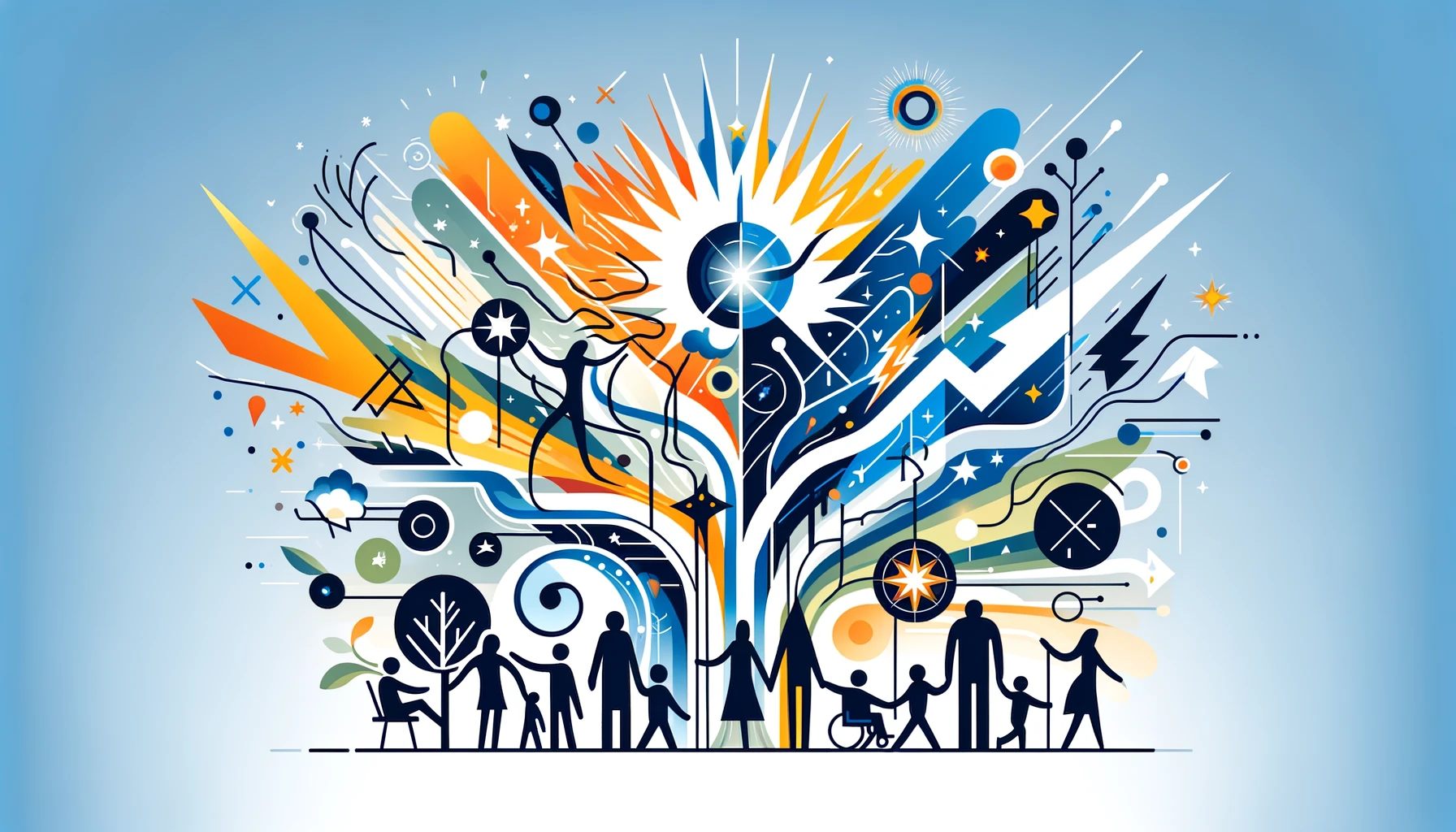Generation Z
EXPECTATIONS AND SPECIFICITIES OF GEN Z
Workshop principle
This workshop aims to explore the specificities and expectations of Generation Z in terms of career, personal life and relationship to the world. It aims to deconstruct some commonly heard clichés about intergenerational relationships by confronting them with reality, to give participants a better understanding of this generation and to collectively consider strategies for intergenerational alliances to build tomorrow together.
The workshop will take the form of an interactive conference and a round table.
Educational Objectives:
- Understanding Gen Z – Participants should leave the workshop with a deeper understanding of the differences between Gen Z and previous generations, but also of what connects them
- Develop strategies: Participants will be encouraged to develop strategies to meet the expectations of Gen Z and to create new inter-generational alliances
- Experience a solution track: live an intergenerational experience, identify examples of possible solutions to take to the company tomorrow
To go further:
To go further in understanding this generation, two complementary studies by their subjects and the time when they were written are particularly interesting:
La grande invaZion: A large survey signed by BNP Paribas and The Boson Project on Generation Z and its vision of the company dating from 2015, when Generation Z was still in high school and in studies
Jeunes cons et vieux fous: a study by Youth Forever, from 2022 focused on the generational divide, its reality and the tracks of a possible alliance
Demystifying clichés about Gen Z
There are many clichés about Gen Z: some are close to reality and others are completely far from it. The important thing is to be able to sort things out and take a step back.
Let’s review together the clichés presented on the posters:

Gen Z is lazy and doesn't want to work
(Source: La Grande InvaZion)
The generation is not lazy and also wants to work. According to the Great InvaZion survey, the concern is quite different. Work expectations are simply not the same as before, hence the misunderstandings.
Indeed, for the same position, 25% of respondents said they would choose the most fun company, 22% would opt for the most innovative one, 21% would work in a more ethical company and 20% would select a job that could make them travel.
Gen Z has no ambition (Source: La Grande InvaZion)
Still according to the results of the BNP Paribas and The Boson Project survey, this new stereotype is once again false. Generation Z even has a taste for risk. 47% of respondents would like to start their own start-up and 84.5% of them will choose their profession out of passion.
Young people no longer see ambition only through money but the challenge and interest in the profession. It’s simply a matter of perception. Moreover, 72% want to be proud of themselves and this stimulates them for their future life.
Gen Z has a low attention span because of social media (Source: Pearson "Beyond Millenials : the Next Generation of Learners)
Attention span is not necessarily reduced; they are simply used to fast and easily accessible information. In fact, a Pearson study indicates that Gen Z prefers active learning methods and can stay engaged when content is relevant, but disengages when it is perceived as too “static” – hence the bias.
Gen Z does not submit to authority
(Source: La Grande InvaZion)
Contrary to popular belief, the “emos” generation (for emotion) wants to maintain a certain hierarchy at work but again the young people expose a condition. 67% of them believe that a good manager is supposed to trust his teams and be a good listener for 62% of the respondents of the survey.
Intergenerational conflicts have always existed, in relatively similar terms (Source: Jeunes Cons, Vieux Fous)
Indeed, intergenerational tensions are not new: Hesiod already said in 720 BC “I have no more hope for the future of our country if the youth of today takes command tomorrow, because this youth is unbearable, unrestrained, simply terrible.” It is up to us to succeed in overcoming them, as previous generations have done before us!
These young people are not wired like us (Source: Jeunes Cons, Vieux Fous)
This cliché is not one, but rather a scientifically proven truth! Indeed, language, words, communication media, symbols are different, even neuronal activations are different – “Cognitive sciences show that the use of the Web, reading or thumb writing messages, consulting Wikipedia or Facebook do not excite the same neurons and cortical areas as the use of books, slates or notebooks. They can manipulate several pieces of information at once. They no longer know, integrate or synthesize like us. They no longer have the same head.” – Michel Serres, Petite poucette.
Gen Z prefers to engage elsewhere than at work (Source: la Grande InvaZion)
For all those who are of working age, work – whether in a structure with a positive impact or in a company to be pivoted deeply – occupies a prime place in addressing the causes that are close to their hearts. Work even accumulates 52% of the first choices for Zoomers – who have not yet set foot in the company for some! This figure is to be compared with 57% for Gen Y and 62% for Gen X.
Gen Z is obsessed with social causes and ecology (Source: Jeunes Cons, Vieux Fous)
Yes it’s true, but just as much as other generations, the feeling of urgency is different for them, but the elements of concern are ranked in the same order, namely:
- Access to education
- Climate transition
- Equal opportunities
Gen Z is in systematic generational opposition (Source: Jeunes Cons, Vieux Fous)
Contrary to what one might think, to the question: do you consider that intergenerational cohesion is a determining element to face the challenges that await us? The generations answer:
- Gen Z answers 4.1 out of 5
- Millennials 4.3
- Generation X 4.5
- Baby Boomers 4.3
Conclusion: it is a widely shared desire and aspiration!
And even more so, reconciliation appears as a rather unprecedented contemporary aspiration – Not surprising that it is the generation to whom inclusion is most important, much more than other generations (44% of Z, 42% of millennia, 36% of X and 28% of BabyBoomers.) For them, the collective in all its diversity, whether social, gender, origin or age, is a richness to move forward. This aspiration to collaborate is particularly unprecedented!
Rethinking an intergenerational alliance to face the major common transition issues

Once these first clichés are overcome, how can we move towards more intergenerational alliances? How can we remake the common? As described in the demystification of the last two clichés, there is actually a common course around social and environmental causes, a shared conviction that the transformations of our companies and our societies will pass through intergenerational and a strong shared desire to re-bond the generations. So concretely, what roles could the different generations play?
By analyzing the responses of the different generations to the question: “What would you like to receive more in today’s world?” we can begin to sketch a new intergenerational pact with:
Gen Z - as Generation relay!
A commando in preparation which, by the force of energy can make things move quickly and efficiently. To the question what would you like to receive more in today’s world, the Z answer:
- knowledge to understand complex issues
- skills to adapt in an uncertain world
- energy to transform ideas
These are their expectations, it’s up to us to help them!
Gen Y as Generation belt
Embodying the next generation not so long ago, Gen Y remembers its ardor when arriving in the company with the will to transform it, and the gradual realization that it is not an easy thing! This generation is the one most marked by the importance of transmission and inter-generational coherence to facilitate scaling up. Their expectations are to have:
- Energy to transform ideas in 1st position
- The transmission of an inventory of past mistakes and successes to accelerate change
- A fresh look at the issues to find new solutions
Gen X as Generation Humility
We find in Gen X the need:
For a fresh look at the issues to find new solutions
For energy to transform ideas
For the courage of nuance in the era of shortcuts
Those who are in leadership positions today adopt a posture of humility and listening and are ready to be shaken up to better advance their ways of thinking. They are at the helm to create the conditions for meeting and listening.
Baby Boomers as Generation Generosity
The expectation vis-à-vis Baby Boomers is very clearly oriented towards giving the means of impact: experience and financial. It is also a duty of transmission that retirees have taken on, a recent survey by Club Landoy revealed that in 2021:
- 30% of volunteers are over 65 years old
- 49% make donations to associations
- 61% of seniors financially help their children
Gen Z and the company
And concretely, how to function to take into account all generations in the company? By first showing a posture of listening. And when asked, “If you could transform companies, what would you do?” Here in their words is the company they would design: (Source: la Grande InvaZion)
More confident: from a control system to a trust system, the company will have to let go and trust the youth
More agile: the company seen by Gen Z is more innovative, more open to failure
More flat: these digital natives dream of companies in the image of the horizontality that digital allows: a flatter, less complex, more flexible hierarchy, with supportive rather than directive managers.
More human-oriented: inside but also outside
More egalitarian: a less discriminating company for a generation that advocates equity and meritocracy
More flexible: in a changing world, Gen Z wants flexible companies, in terms of schedules, pace, work relationship and codes
More meaningful: Gen Z is – like Gen Y – also very concerned about the answer given to the sacrosanct “why?” Why commit to a company? Because it is meaningful, it impacts society, it has that extra soul that makes young employees adhere to the project… and get up in the morning!
More open: connected individuals at the heart of an ecosystem, they do not imagine that the company can be curled up on itself, closed to the world around it. They want to build more bridges, especially with schools.
Keeping these elements and wishes in mind, the latest study to date – Jeunes Cons et Vieux Fous – identifying 3 main action tracks to go further Care, Enable & Impact

Care: Create the conditions for mutual consideration
Theorized by the American political scientist Joan Tronto, it is divided into 4 phases:
Care about: pay attention to others
Taking care of: define one’s responsibility to act to meet the identified need
Care giving: take care of the other
Care receiving: recognize the reaction to care
The manager has an essential role in this care action, freeing up time for them and reviewing their managerial objectives in this sense appears to be a priority.
Complementing managers in this care approach also appears to be essential and in particular by:
organizing live pulse taking via barometers
allowing raw feedback from the field, without filter by creating a dialogue at the highest level of the organization
Enable: Organize the rise in power
By creating a common language and deliberately intergenerational places of discussion whose objective is to create the common
By fostering mutual learning. As Frédéric Bardeau, President and co-founder of Simplon, says, “The exceptional playground of intergenerational learning is learning. It makes sparks! Because the rise in skills is not only in one direction: the apprentice also teaches the tutor. He arrives with his skills, with his generation, with his approach”. But then, who transmits what?
From tutor to tutee: immense added value on soft skills and on the reality of organizations! If technical skills are renewed at high speed, soft skills are often arrows sharpened on the bow of many seniors. Their knowledge of the company and human functioning is also key for Gen Z to succeed in making their knowledge real vectors of change.
From youth to years: new knowledge and questioning. Gen X, in leadership positions today, wants to be shaken up in its representations and beliefs. There is a challenge to accelerate the awakening of elders thanks to the fresh look and new knowledge that the next generation has been able to accumulate – especially on transition issues.
For all this to happen in the best way, it is necessary to define the transmission needs on a case-by-case basis. As Véronique Lemarchand, Training & Consulting Manager at Deloitte, says: “Everything is played out in my opinion in the collection of needs. We can have a top-down approach and tell ourselves that we know what employees will need. Or we have a low posture by working almost at the mesh of each employee to identify the deltas.”
Impact: reinventing the leadership factory
- Empowering youth is necessary, but not sufficient. To really create the conditions for long-term impact, leadership plays a key role.
- 94% of young people believe that business leaders take environmental issues insufficiently or not at all into account in their decisions – issues that have become non-negotiable for them. How can we reinvent this leadership so that it meets the immense challenges to be addressed within the company?
By preparing leaders! As Barthélémy Guislain, President of the Mulliez Family Association, says: “The 1st brake on the deployment of breakthrough schemes in companies is a poor understanding of the subject due to lack of training of leaders. As long as leaders do not accept to spend time on scientific reality, they risk remaining in denial about their responsibility.”
By learning to pass the torch as Mr. Guislain also advises: “We must trust the next generations much earlier than we did with my generation to put young people in a position to make decisions on these subjects.”

